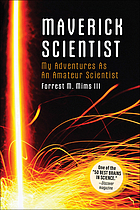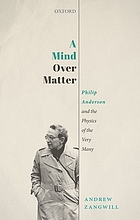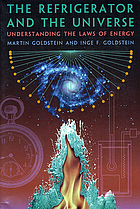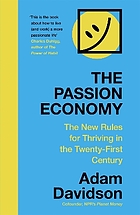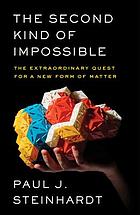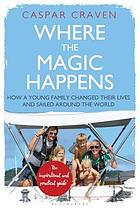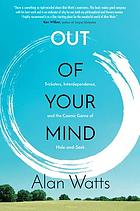Maverick scientist : my adventures as an amateur scientist
by Forrest M. Mims III
Finished reading: June 10, 2024.
By around 1980, my brother Stefan bought all of the author's Mini-Engineer's Notebooks that were at our local Radio Shack. We still have them, and refer to them. Forrest Mims is a national treasure who has influenced millions of young people to investigate their world and build circuits.
This book was a pleasure to read, both entertaining and inspiring, written by a man of quality with courage and integrity. We need more people like the author to get young people - especially in the United States - interested in science and engineering. This book also contains a cautionary tale on how being judgmental can ruin the lives of both the one who judges and the one being judged. The biggest surprise in this book was the humor.
Because of the author's views on evolution, Charles Darwin figures prominently in this book. Charles Darwin was a thoughtful man, despite what some of his proponents might lead you to believe. As an example, a quote from Darwin that does not appear in the book is "I have deeply regretted that I did not proceed far enough at least to understand something of the great leading principles of mathematics; for men thus endowed seem to have an extra sense". Mims never learned much math, getting a degree in government. This is one aspect of Mims you should not emulate. Learn as much math as you can every day. The benefits are enormous.
One aspect of Mims everyone should emulate is his meticulous note taking of daily experiences. This habit is evident in the fact that from his early years he provides details one surely couldn't recall without the help of a notebook.
This book is highly recommended to anyone who has done a science fair project, or who at any age would like to do one, or who is interested in getting more young people interested in science and engineering, or who simply wants to know who this Forrest Mims guy is.
The Tao of physics : an exploration of the parallels between modern physics and Eastern mysticism
by Fritjof Capra
Finished reading: May 1, 2024.
If you find both eastern religions (Buddhism, Hinduism, Taoism) and physics interesting then you'll like this book. I love physics and have an interest in religion so I enjoyed this book. Capra knows (particle) physics well, and does a surprisingly great job at introducing the eastern religions, I think due to the fact that good physicists have a knack for getting to the heart of everything they investigate.
The central theme of this book is that everything in the universe, from subatomic particles to people, is connected with the rest of the universe, and its corollary, that what you see depends on how you look at it.
I enjoyed this book, and recommend it. Suggested improvements for the next edition: include technical details of the physics discussed, aka equations, at least in an appendix. Broaden the scope beyond particle physics and relativity to other major areas of physics such as condensed matter, statistical mechanics, and astronomy.
A Mind Over Matter : Philip Anderson and the Physics of the Very Many
by Andrew Zangwill
Finished reading: December 18, 2022.
This is a great biography of the most creative and influential condensed matter physicist of the second half of the twentieth century. The author is a condensed matter physicist himself so the book is clear on background explanations and professional achievements of the subject. This biography has just the right mix of technical details and personal information. I found it hard to put down, as the author is a superb writer with an engaging style, who has done his homework with this book. I will be reading any future works he puts out in the history of physics category. I highly recommend this book to anyone with an interest in the history of physics.
The Refrigerator and the Universe: Understanding the Laws of Energy
by Martin Goldstein, Inge F. Goldstein
Finished reading: September 25, 2022.
This book is gold, as in Goldstein. The authors know the subject of thermodynamics very well and take us on an epic journey through the far reaches of the subject's domain, as well as cover its history. While this book doesn't contain problems, it is an inspiration for problems and further investigations. I couldn't recommend it more highly. My only criticism is really just a personal preference that the book be at the level of a university physics textbook, with calculus, not just algebra. But as such, it appeals to a wider audience. The extensive annotated bibliography at the end serves as a roadmap for further reading.
Experiments and Ideas on CO2
by Francesc Molins
Finished reading: October 2, 2021.
This wonderful book takes you on a comprehensive tour of the CO2 (carbon dioxide) molecule. The style is one of exploration, showing how much we can learn from simple facts, experiments, physics and logic. The intended audience is "young people". I enjoyed it immensely, yet would only fall in the category of "mentally young". This book is highly recommended to anyone who wants to learn more about this important molecule.
Note that because of the importance of the greenhouse effect in these times, one would expect that a book on CO2 would discuss the topic. Although this book doesn't explicitly name the greenhouse effect, it does a great job at explaining how you can know which molecules will absorb infrared, thereby heating up the atmosphere and producing the greenhouse effect.
This appears to be the first book by the author. I hope he writes more, as his style is one that makes any technical subject he chooses to focus on to be fascinating.
The Passion Economy: The New Rules for Thriving in the Twenty-First Century
by Adam Davidson
Finished reading: March 13, 2020.
If you own a struggling small business, or want to go into business for yourself, you need to read this book. It will show you how to thrive while others are struggling. This is likely going to be my nominee for best business book of 2020.
The Second Kind of Impossible: The Extraordinary Quest for a New Form of Matter
by Paul J. Steinhardt
Finished reading: Sept 12, 2019.
This is an exciting scientific detective story, and much more.
This autobiographical book illustrates the fact that the mind of the theoretical physicist is unique among all professions. It is guided by what I like to call the Zeroth Law of Physics: Beauty shows the way to truth. To be guided by beauty is not enough though. It must be accompanied by a devotion to experimental verification. Without it, one becomes lost in a corner of math, as the string theorists have demonstrated. Steinhardt, to me, represents the ideal theoretical physicist. He motivates me to work as many physics problems as I can every day, in order to develop a sense of beauty, and to simultaneously maintain the attitude that experiment is the ultimate arbiter of truth.
The author also possesses another quality which I find inspiring: that of eagerly and fearlessly following the rabbit down the hole to wherever it may go. Yet another of his inspiring qualities is that, like his mentor Richard Feynman, he has simultaneously pursued disparate interests. For him it has been cosmology and quasicrystals.
I think this book has an especially great potential to influence young people, as it shows what a good scientist is like, and how rewarding a life of science can be.
Where the Magic Happens: How a Young Family Changed Their Lives and Sailed Around the World
by Caspar Craven
Finished reading: August 7, 2019.
This book is at once a "how to" for achieving ambitious goals, and a travel log on sailing around the world. For me it did a splendid job on both counts. The goal achievement part has been a kick in the ass for me, and the sailing part has gotten me interested in something I previously had zero interest in.
A word of caution: Mental stress is a frequent cause of back pain. The author's back surgery just before his family's sailing trip departure corresponded to a peak in his stress. He reported no back problems after the trip began. Back pain should be interpreted as a warning to reduce stress. This can be achieved through meditation, yoga, and daily reading of the works of high quality gurus like Thich Nhat Hanh, Ajahn Brahm, Eknath Easwaran, and Alan Watts.
A remarkable revelation of this book, is that on certain tropical Pacific islands, there is virtually no crime, and people share what they have. What a beautiful world this might be.
I give this book ten stars out of five.
Universe in Creation: A New Understanding of the Big Bang and the Emergence of Life
by Roy R. Gould
Finished reading: July 9, 2019.
Roy R. Gould is Alan Watts with a physics education. It seems the
mystic scientist used to be more common, going back at least as far as
Pythagoras. But, with the death of Einstein, they appear to have
become extinct in the 20
Out of Your Mind
by Alan Watts
Finished reading: June 2, 2018.
This book is a gem, and like a gem, it has many facets. We first borrowed it from the library, but then bought a copy. It's not a book to read once and discard. It's for contemplative reading, passages of which should be read over and memorized. It's a book which can reduce anxiety and help you feel a connection to the universe.
This book is a graduate level course on the good life. If you're just starting out on your path to the good life, that is, deeply enjoying life, I don't recommend this book. It will be "a bit over the top" as one dissatisfied reviewer put it. Instead, I recommend starting with the books by Buddhist monks Thich Nhat Hanh, and Ajahn Brahm. With a couple years of reading and practicing their ways, you'll be ready to benefit from "Out of Your Mind".
Below are my favorite quotes from the book.
- p.9 You are the big bang. You are the original force of the universe manifesting as whoever you are in the moment.
- p.13 Apples are symptomatic of apple trees; roses are symptomatic of rose bushes; and we are symptomatic of the universe.
- p.13 If I am I because you are you, and you are you because I am I, then I am not I, and you are not you. [Attributed to wise rabbi]
- p.32 ...gurus of all types tell you to know yourself, to look within, to find out who you really are, because the harder you look, the less you will find, and then you'll realize it was never there in the first place. There isn't a separate you. Your mind is what there is. It's everything.
- p.35 ...it will one day be a matter of common sense to most people that we're all one with the universe.
- p.42 I'm not saying it's a bad thing to take your individual life seriously. But you could see your problems and challenges as manifestations of nature, like patterns in waves, or waves in the ocean, or shells upon the beach.
- p.47 The total intelligence of the entire universe crystallizes in human brains - as well as other types of brains - and that's where it comes out. But it's still the total intelligence of the entire field. So we go with the whole thing - we interdepend with all of it.
- p.49 ...the first secret we're not taught: supposedly, separate things are actually connected on a fundamental level...the second secret: things that seem opposed are inherently mutual and unified.
- p.50 ...when you actually catch the fish yourself, you realize that the fish doesn't like it very much. And most of us avoid looking at that extraordinary and terrifying side of things.
- p.50 Think about skulls and skeletons and imagine going to sleep and never waking up. It's a gloomy thing to think about, but it's like manure in that contemplating death is incredibly generative of creative life.
- p.52 Each of us is an ocean.
- p.58 People who are interesting are people who are interested. A person who thinks about all sorts of things and is fascinated by people and life becomes a fascinating person.
- p.59 ...if you truly explore yourself and go deeper and deeper into your own nature, you'll find that you're a rhythm.
- p.71 ...these people - who knew they were finished - had accepted it. And when they accepted it, they had a strange feeling that everything was absolutely clear, that everything in the entire universe was just as it should be - every grain of dust in the universe was in exactly the right place.
- p.72 We don't have to suffer being bombed or put into concentration camps. In this very moment, we can be as those about to die.
- p.79-80 Zen emphasizes immediate action. When anything is to be done, it should be done immediately without thinking it over in advance. You'll find this to be a characteristic of people who have been trained in Zen - they don't sit around and debate with themselves about how to do something, they just do it.
- p.80 ...if you really get into that boing sound, you can see the whole universe in boing, because each vibration implies all others.
- p.81 ...the world is neither organic nor mechanical, and it is neither voluntary nor involuntary - it is simply what it is, beyond the categories of our contrasting, selective awareness.
- p.82 The very perception of the illusion makes it possible to live up to the illusion.
- p.82 ...there is no such thing as wasting time, because what is time for except to be wasted? Just sit and do nothing. Meditation is the perfect waste of time.
- p.83 ...no government likes mystics. Mystics understand that you have to have nothing to have something. Mystics don't fear death, so you can't scare them.
- p.85 ...life isn't life without death - knowing that it will come to an end makes it poignant and lively.
- p.86-7 ...you should meditate on nothingness. I know it's difficult to think about, but it will be easier when you remember that nothingness is what you are and what you were before you were born. This is an extremely important point. It's the secret to the whole thing.
- p.87 If you truly explore nothingness, you'll become full of energy, so there's nothing in your way. And if that's the case, you can do this, that, and the other thing with glee and be thoroughly creative.
- p.96 When you try to accord, you deviate. [Master Bokuju]
- p.96 Hsin-Hsin Ming, a marvelous summary of Buddhism in verse.
- p.97 Platform sutra, which any student of Zen should read.
- p.97 ...when we swim with the stream, the whole strength of the flow is ours.
- p.98 ...you discover you are the whole universe, and you discover it suddenly, which is a shock.
- p.103 I'm not saying there should be no criticism of thought. I'm saying that when you criticize thought while you're thinking, it makes you balled up and fundamentally confused.
- p.107 The real meaning of being a monk is no longer trying to keep up with the Joneses.
- p.107 The whole idea of being better than someone else doesn't make any sense at all.
- p.126 ...detachment...just means going with this whole thing and not resisting change.
- p.127 Brahman plays at being the world, which is distinct from working at it.
- p.128 Our very existence is rhythm -- waking, sleeping, eating, moving.
- p.134 By living totally here and now, one's eyes are opened in astonishment.
- p.145 ...G.I. Gurdjieff...made his students watch themselves constantly, and told them to never, never be absentminded.
- p.148 Rugged individualism always leads to conformism. People get scared, they herd together, they wear the same clothes, and the clothes just get duller and drabber.
- p.155 The Buddha found out that there was no trap to get out of except himself -- trap and trapped are one.
- p.160 Just as a dog is not considered a good dog just for being a good barker, a man is not considered a good man just for being a good talker.
- p.167 G.I. Gurdjieff taught that the most important thing for anyone to realize is that you and every person you see will soon be dead.
- p.169 When you discover that there is nothing to cling to and that there isn't anybody to cling to them, everything is quite different.
- p.173 Chuang Tzu once said, "It's easy enough to stand still -- the difficulty is walking without touching the ground."
